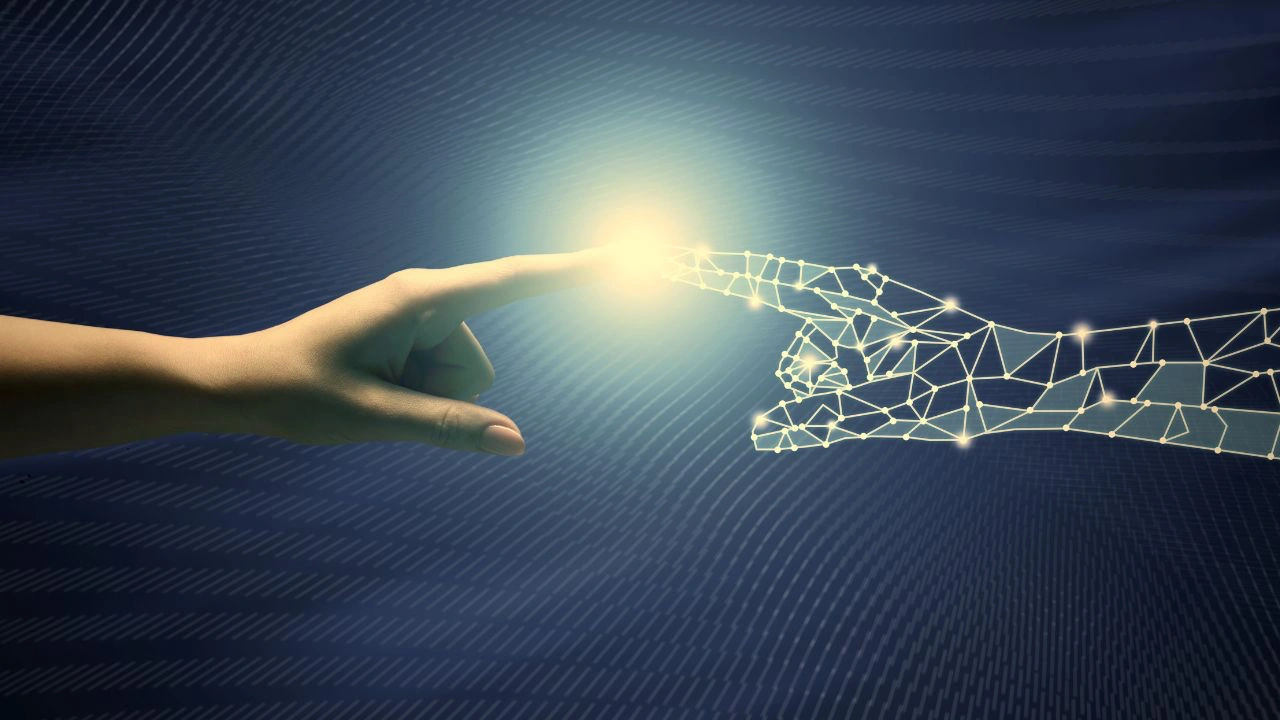Table of Contents
- Introduction
- The Impact of AI on Therapy
- The Risks of AI in Mental Health
- Therapists’ Skills vs AI
- Holisyntony: A Holistic Approach
- FAQ
Introduction

Let’s face it. Artificial Intelligence (AI) is transforming how we work, and healthcare is no exception.
I use AI every day: to find studies, cross-check data, understand complex symptoms. It’s powerful — and yes, I love it!
But I also see too many therapists and coaches using it the wrong way.
The Impact of AI on Therapy
Ethical AI in Therapy
Many people already think you can just plug in AI and solve everything.
They let AI write their health advice. They rely on it for quick diagnoses. They hand over their coaching programs and guided meditations.
The result? Always the same.
Their advice feels bland, soulless. Their coaching sounds hollow, disconnected. Their programs lack life and personal experience.
The problem isn’t AI.
In fact, AI is already better than most coaches who spew out simplistic techniques, tips on limiting beliefs, generic visualizations, and ‘5 steps to happiness’. It can listen to all your issues, give you health advice in seconds, analyze symptoms better than an overwhelmed GP.
The Risks of AI in Mental Health
Risks of AI in Mental Health
But here’s the catch: AI has no holistic vision.
It can compile data, but it will never grasp the lived experience of a human — that unique mosaic of joys, wounds, and secret impulses.
It will never feel the intuition of a soul — that whisper that guides a therapist when they walk someone back to the living.
And this is where you come in.
Not just any therapist. Not those who apply ready-made formulas from a book or a weekend course. AI will outpace them; it already knows all the mental techniques and coaching scripts.
No — the therapists who will matter tomorrow are the ones who have lived.
Those who have faced human resistance in their own flesh — the doubts, fears, the walls of transformation.
Those who questioned their life, healed their own wounds. Who listen beyond words, who feel the energy in a room. Who help others reconnect to life and to themselves.
That path — AI does not know it.
It’s like a teenager who’s very mature for their age, who knows everything thanks to social media, has an opinion on everything… but hasn’t lived yet.
Reality will humble them. Maybe even make them more intuitive. But AI will never experience that.
That path takes time. Authenticity. Years of exploring, falling, rising again. But that’s the path humans will soon seek — tired of mechanical answers and heartless solutions.
That path asks you to connect with your unconscious, to tame it.
What does AI know about that? This path invites you to dive into altered states of consciousness, then manifest magic in your reality…
And AI can do absolutely nothing there.
Your strength is your lived experience.
It’s when you support a woman broken by stress because you’ve felt that knot in your chest. It’s when you guide a man who’s lost his vital drive, because you’ve walked through that fog. It’s when you cry out against the empty promises of wellness, because you know what real transformation is.
AI is designed to be flawless, without cracks, without a story.
But your cracks, your story — that’s where your power lies. That’s what touches your clients deeply, helps them rise again.
Therapists who just copy techniques will be replaceable — robots among robots.
Those who embody a holistic, energetic, lived vision… will be irreplaceable.
I’m not against AI. On the contrary — it’s an incredible ally, a tool to dig deeper, understand further, free up time for what really matters.
But it will never replace what makes you a unique therapist: your intuition, your experience, your ability to reconnect a human being with life.
Therapists’ Skills vs AI
Therapists’ Skills vs AI
That’s why I created Holisyntony.
After 20 years exploring alternative medicine, healing my own shadows, guiding souls on a quest, I built a method that responds to this changing world.
Holisyntony is the antidote to AI’s drift.
It’s an approach that sees the human being as a whole: their body, thoughts, emotions, memories, the system they live in, the environment they’re part of, what they eat, how they breathe…
It’s an art of reconnecting to the living — not a checklist of tips.
And that’s what we’ll explore together in Portugal, from July 2 to 5, 2025 — a retreat where you’ll experience Holisyntony in your own body.
Four days to dive into your own journey, refine your intuition, master a method that makes a difference today.
And will make an even bigger one tomorrow.
Spots are limited. But humans seeking authenticity? They’re only going to grow in number.
FAQ
Why can’t AI replace therapists?
AI has no holistic vision and cannot grasp a human’s lived experience. It cannot feel the intuition of a soul — that whisper guiding a therapist helping someone return to life.
How can therapists use AI ethically?
Therapists can use AI as a tool to dig deeper, understand better, and free up time for what matters — but they must always rely on their intuition, their experience, and their ability to reconnect humans with the living.
What are the dangers of AI for mental health practitioners?
The dangers include relying on quick diagnoses and bland, soulless health advice, which can make their coaching sound hollow and disconnected.
Links to Other Articles
- Holisyntony: The Peak of Holistic Health?
- Escaping Therapeutic Drift: How to Find the Right Treatment and Heal for Good
- Exploring Altered States of Consciousness: A Journey into Personal and Spiritual Growth


